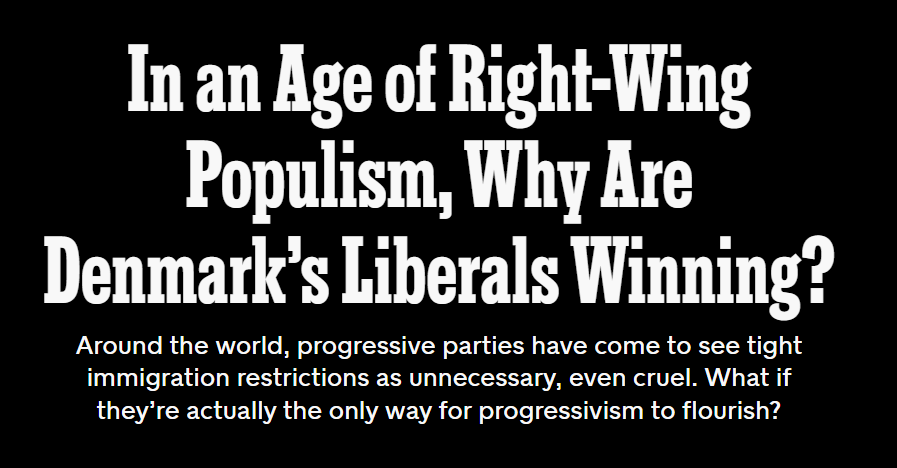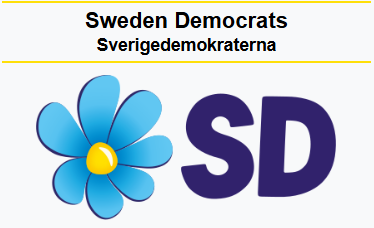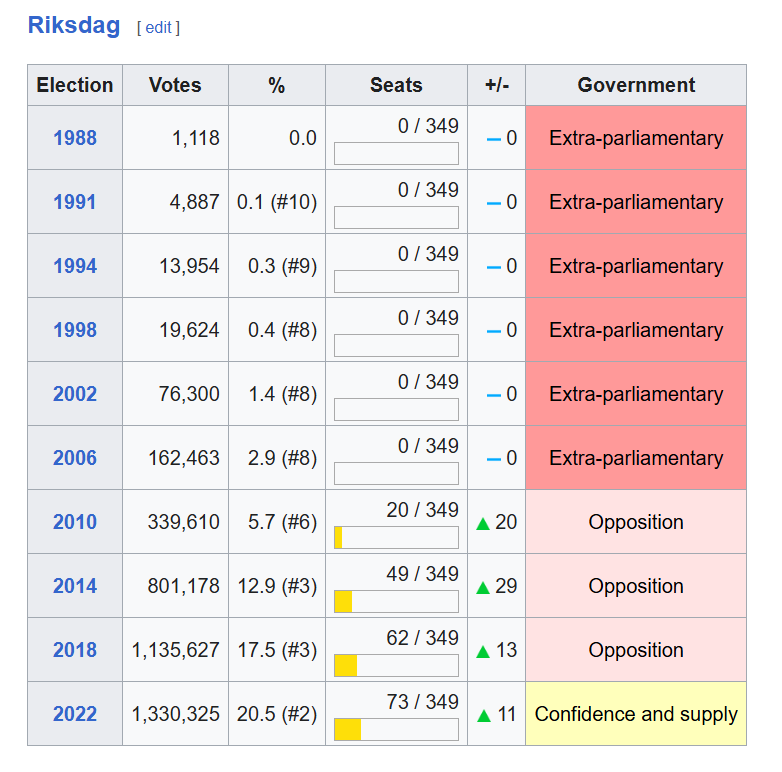The Way Forward
Related: About this forumThe One European Country Where the Progressive Left is Winning -- and we could too
In Hungary, Prime Minister Viktor Orban has changed laws and marginalized critics to help him remain in office. In Austria, Britain, France, Italy, the Netherlands, Sweden and elsewhere, the far right has grown. In Germany’s election on Sunday, the governing center-left party finished third, behind the center right and far right. In both Canada and Australia, polls suggest that center-left governments will lose elections this year. And in the United States, Joe Biden left office with dismal approval ratings, and Trump won the popular vote for the first time last year. In each of these cases, a major explanation is that working-class voters have drifted from their historical home on the political left and embraced some mix of populism, nationalism and conservatism. Over the past several years, there is arguably not a single high-income country where a center-left party has managed to enact progressive policies and win re-election — with the exception of Denmark.
Since the Social Democrats took power in 2019, they have compiled a record that resembles the wish list of a liberal American think tank. They changed pension rules to enable blue-collar workers to retire earlier than professionals. On housing, the party fought speculation by the private-equity industry by enacting the so-called Blackstone law, a reference to the giant New York-based firm that had bought beloved Copenhagen apartment buildings; the law restricts landlords from raising rents for five years after buying a property. To fight climate change, Frederiksen’s government created the world’s first carbon tax on livestock and passed a law that requires 15 percent of farmland to become natural habitat. On reproductive rights, Denmark last year expanded access to abortion through the first 18 weeks of pregnancy, up from 12 weeks, and allowed girls starting at age 15 to get an abortion without parental consent.
------
------
American progressives venerate the middle decades of the 20th century, for good reason. From the wreckage of the Depression, the United States built a prosperous, inclusive economy between the 1930s and the 1970s. Incomes for the poor and middle class rose faster, in percentage terms, than they did for the wealthy. Although racial injustice remained acute, it receded. The Black-white pay gap began shrinking in the 1940s and shrank even more during the civil rights movement. In Europe, this same period was also good for workers. The French refer to it as Les Trente Glorieuses, or the 30 glorious years.
There is one part of this story progressives often forget, however.
Free link below
https://www.nytimes.com/2025/02/24/magazine/denmark-immigration-policy-progressives.html?unlocked_article_code=1.0k4.zsFC.0F3ud0xBCep2&smid=url-share
Celerity
(53,571 posts)to do the same thing).
this is from your OPs NYT article:

https://www.nytimes.com/2025/02/24/magazine/denmark-immigration-policy-progressives.html?unlocked_article_code=1.0k4.zsFC.0F3ud0xBCep2&smid=url-share
snip
But there is one issue on which Frederiksen and her party take a very different approach from most of the global left: immigration. Nearly a decade ago, after a surge in migration caused by wars in Libya and Syria, she and her allies changed the Social Democrats’ position to be much more restrictive. They called for lower levels of immigration, more aggressive efforts to integrate immigrants and the rapid deportation of people who enter illegally. While in power, the party has enacted these policies. Denmark continues to admit immigrants, and its population grows more diverse every year. But the changes are happening more slowly than elsewhere. Today 12.6 percent of the population is foreign-born, up from 10.5 percent when Frederiksen took office. In Germany, just to Denmark’s south, the share is almost 20 percent. In Sweden, it is even higher.
These policies made Denmark an object of scorn among many progressives elsewhere. Critics described the Social Democrats as monstrous, racist and reactionary, arguing that they had effectively become a right-wing party on this issue. To Frederiksen and her aides, however, a tough immigration policy is not a violation of progressivism; to the contrary, they see the two as intertwined. As I sat in her bright, modern office, which looks out on centuries-old Copenhagen buildings, she described the issue as the main reason that her party returned to power and has remained in office even as the left has flailed elsewhere.
snip
For progressives in the United States, Denmark may not be an especially comfortable exemplar. The cruel aspects of Trump’s immigration policy have understandably outraged many people. But in Germany and Sweden, politicians who once criticized Frederiksen’s approach have since begun to emulate it, and for center-left parties around the world, Denmark offers a glimpse at what a different version of the left can look like — more working-class, more community-focused and more restrictive on immigration. Frederiksen and her Social Democrats have confronted their peers elsewhere with a question: In the modern age, is a restrictionist border policy a prerequisite for successful modern progressivism?
snip
https://www.theguardian.com/commentisfree/2021/apr/18/by-demonising-asylum-seekers-denmark-reflects-a-panic-in-social-democracy
somsai
(211 posts)the fortitude to read all of a long form article written with nuance on a complicated subject.
I know many would probably prefer living in this harsh form of capitalism where we constantly seek to claw our way out from the pack while our cities are full of inequality, the homeless, drug addicts, the mentally ill, and felons. I'd rather the Democratic Socialism such as enjoyed by Denmark. I think their form of government has a lot to recommend it.
Celerity
(53,571 posts)of social democracy, where we have vibrant (and very regulated) capitalist economies that synergistically work hand in hand with expansive social welfare states to provide some of the highest standards of living on the planet.
In terms of immigration here in the Nordics, my nation, Sweden (I have tripartite citizenship, US via being born in Los Angeles, and then British, as I grew up post 2 years of age in London, and Swedish, as my father is Swedish and we (my wife and I) moved to Stockholm in 2018) is the big outlier.
We let in (both in terms of raw numbers and deffo in terms of percentage of population as Sweden is roughly twice the population of the other 3 main Nordic nations) far more immigrants (mostly refugees) than the other 3. We have, over the past 30 or so years, and especially from 2003 onward (Iraq US war and then the Syrian conflict later on) brought in a US population-adjusted equivalent of over 50 million.
We have done a shit job at integration, we have created many areas where the immigrants are isolated and vulnerable to Islamic radicalisation and also extremely violent gang activity. In January 2025 alone we have had over 30 bombings, all gang-related, plus over the past decade our gun murders have increased (again mostly gang related).
Norway, Finland, and especially Denmark have looked on at us with horror for the last 20 or so years, especially the past 10 to 15.
This all has also led to the rise of the far right Sweden Democrats (Sverigedemokraterna aka SD) in our Riksdag (they are now the 2nd biggest party, surpassed in size only by my party, the Social Democrats). All of the other Swedish political parties for years refused to even talk about potential issues, and most even swung hard (or maintained) to a 'let in as many as possible' stance. This allowed the Sweden Democrats to enter the Riksdag (our unicameral national parliament) in 2010, and then to grow and grow, until they now, since the 2022 elections, are in a confidence and supply scheme with some of the centre right parties to form a government ruling majority.


The explosion of Syrian refugees during the mid 2010s (roughly 2013 to 2018), plus the surge in gang violence and murders greatly aided the rise of SD, and also, finally changed the stances of many of the other political parties to retract much of the 'bring in as many as you want'.
Sweden, for 6 decades plus post WWII, was either first, second or third on the planet in terms of wealth equality, which is the number one interlocking statistic that determines the social-political health of a nation. We now have allowed a semi-to-perhaps permanent underclass to bloom within the immigrant cohort. We have done such a poor job at integration (as I already stated) and it is not aided by so many of the refugees who detest our pluralistic, tolerant, pro woman-empowerment, pro-LGBTQ Swedish culture, and also not aided by the ones who also detest democracy overall. It is a tragedy that is negatively impacting so many, especially the younger refugees, who preyed upon by the gangs and the religious radicals.
I have posted on this whole thing dozens of times in my 6 and half plus years here on DU.
betsuni
(28,655 posts)"I know that some people in the US associate the Nordic model with some sort of socialism. Therefore, I would like to make one thing clear. Denmark is far from a socialist planned economy. Denmark is a market economy."
electric_blue68
(25,687 posts)From your post...
I'm about to be 72. A New York City Citizen all my life. Of course we have our problems here and there but....
If you think that that is all what NYC, and other great USA cities (examples: Chicago, Boston, Atlanta, San Francisco etc) are about?...
Then, shame on you!
Loud, and effin' Proud NYC'r!
(been to Boston, SF, and Atlanta. 👍
Yet to visit Chicago)
Hekate
(100,132 posts)Blasphemer
(3,571 posts)The more homogeneous a country is.
Celerity
(53,571 posts)Mike 03
(18,690 posts)BBC World.
There's a great quote in the movie The Color of Money, spoken by Paul Newman's character:
"Sometimes when you lose, you win."
It makes me uneasy to say this, but I think there are a couple of issues where we need to lose in order to win everything else. People like Gavin Newsome and (uggg) Fetterman may be trying to tell us that "sometimes when you lose, you win."
malaise
(292,359 posts)Really sensible people
Celerity
(53,571 posts)That is what the article is about.
Also Finland is, most years lately, including 2024, the world's happiest country. Denmark is usually 2nd.
malaise
(292,359 posts)My oldest sibling has lived most of her life in Denmark. AreDanes xenophobic - yes and no. Do their citizens live quality lives - yes and that includes big sis, her in laws, my nephews, their wives and kids.
I was in a village store with one of my nephews a while back and the owner asked my nephew why he was speaking English,. He said because I was visiting and didn’t speak Danish. He turned red and apologized.
Celerity
(53,571 posts)We have been, on balance, a trainwreck, and it has allowed the rise of the far RW Sweden Democrats in our Riksdag (parliament). I have posted on this dozens of times here, often in a lot of detail, over the years.
creon
(1,772 posts)There is a limit to the number of immigrants/refugees that a country can absorb/assimilate.
When that limit is exceeded, there will be problems.
That sounds heartless; and, probably is.
There have to be programs and systems to make assimliation easier and less painful.
malaise
(292,359 posts)and Africa should have followed those rules and limited the white plunderers
Celerity
(53,571 posts)They did fight.
From the very beginning.
There were too many of those Europeans.
andym
(6,050 posts)It seems that anti-immigration feelings are strong in the Western world. OTOH, the US is different from these counties, as the US is a country of immigrants outside the small population of indigenous peoples that remain.